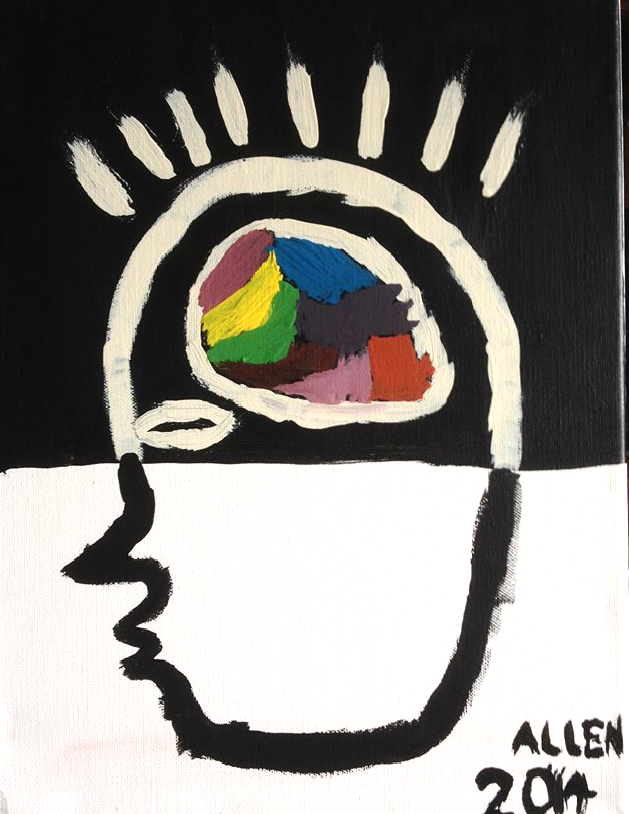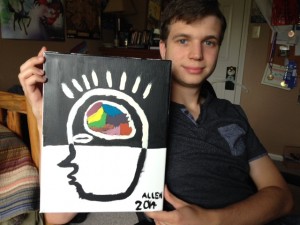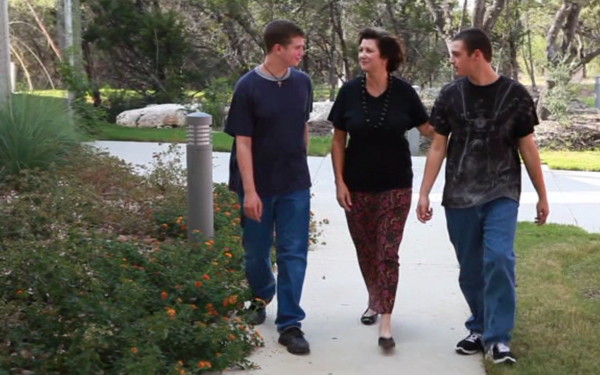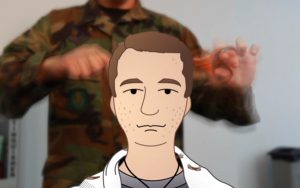An Evening with Dr. Temple Grandin
Dr. Grandin speaks as I’ve never heard her before! Opens up about her life experiences while offering valuable tips for succeeding with the Autism Spectrum Disorder diagnosis. Great listen for parents, educators, employers, and those with ASD. She touches on putting career first and autism second and gives examples of her previous jobs including that with NASA. Schools should be focusing on the skills/trade opportunities for kids with autism as many excel in these programs. She also discusses difference in how all those with autism process information, some visual others not so much so. There are places in the workplace for both. Very inspirational as she ends with both arms up in the air and the audience rising to the feet for the occasion. We feel you will do the same.
Specialized Interests
Temple went on to say that for those with a specialized interests, who embrace robotics, artificial intelligence and automation may find themselves in a good position within our future workplace.
Within the USA Today article, Bill Brennan, audit transformation leader for PricewaterhouseCoopers, states that he is now hiring employees with backgrounds in science, technology and engineering. “We need those individuals to help us as we get into data analysis, analytics, data security, cloud computing. The future employee is going to have a combination of those skills,” Brennan said.
Continue ReadingA graduate of Abilene Christian University, Jennifer had a long career in TV Broadcasting. Upon learning her oldest son Sam had a form of Autism called Asperger’s Syndrome, she left her career and became a full-time mother to both of her sons. Jennifer elicited the participation of her family and together they produced several independent programs including a children’s animated series titled Ameriquest Kids, as well as a documentary and book titled, Coping to Excelling: Solutions for School-age Children Diagnosed with High-Functioning Autism or Aspergers Syndrome. She formed the nonprofit Asperger101 to provide on-going free resources related to ASD at Aspergers101.com and has implemented the Texas Driving with Disability Program and continues to grow the statewide initiative today. She and her husband have recently retired to their property in the Texas Hill Country.

















 This is the third installment of my piece speaking about the health of a caregiver and it has been an interesting journey these past weeks. We as caregivers get in such and stay in such serious modes, that sometimes it takes something drastic to pop us out of our self imposed prisons of heaviness and sometimes fear. It was almost two years ago to the date that in San Antonio and much of Texas it full on snowed! Now for some of us who were raised around snow, (my parents were bi coastal people), this could have seemed mundane but it was not anything of the sort. I was so happy and joyful that it was snowing, I surprised myself and as I looked around me, everyone and I mean everyone was smiling and laughing and making snowballs and snowmen. Then it hit me, it hit me why I had to wait till this very moment to write this very thing. Life and it’s tragedies are real but in those moments of lifting and or explaining, or seeing people’s faces in reaction to perhaps a behavior your person was exhibiting, in those moments the divine breaks in. Now maybe it’s not snow in the south or something as drastic as that but I believe wholeheartedly that we are given sweet miracle moments that release us from the prison and remind us that we are free to live and enjoy and to find joy in the big and little things in life. I can tell you, I love each and every one of you who are struggling to be, when you don’t even know if you can put one foot in front of the other. I send you thoughts and knowledge that you can find the divine and joy in your task of caregiving, you just have to seek them, to go after them because joy can seem fleeting like the melting snow but the take away is this. When we can choose to see the beauty in a smile, or in a victorious moment where we somehow connect to and with our people, then that is where we see the miracles happen of this season and all year round . We may feel exhausted and cranky sometimes as caregivers but let us remember the beauty we are giving we get back in unexpected ways. Seek those moments and I know you will not be disappointed.
This is the third installment of my piece speaking about the health of a caregiver and it has been an interesting journey these past weeks. We as caregivers get in such and stay in such serious modes, that sometimes it takes something drastic to pop us out of our self imposed prisons of heaviness and sometimes fear. It was almost two years ago to the date that in San Antonio and much of Texas it full on snowed! Now for some of us who were raised around snow, (my parents were bi coastal people), this could have seemed mundane but it was not anything of the sort. I was so happy and joyful that it was snowing, I surprised myself and as I looked around me, everyone and I mean everyone was smiling and laughing and making snowballs and snowmen. Then it hit me, it hit me why I had to wait till this very moment to write this very thing. Life and it’s tragedies are real but in those moments of lifting and or explaining, or seeing people’s faces in reaction to perhaps a behavior your person was exhibiting, in those moments the divine breaks in. Now maybe it’s not snow in the south or something as drastic as that but I believe wholeheartedly that we are given sweet miracle moments that release us from the prison and remind us that we are free to live and enjoy and to find joy in the big and little things in life. I can tell you, I love each and every one of you who are struggling to be, when you don’t even know if you can put one foot in front of the other. I send you thoughts and knowledge that you can find the divine and joy in your task of caregiving, you just have to seek them, to go after them because joy can seem fleeting like the melting snow but the take away is this. When we can choose to see the beauty in a smile, or in a victorious moment where we somehow connect to and with our people, then that is where we see the miracles happen of this season and all year round . We may feel exhausted and cranky sometimes as caregivers but let us remember the beauty we are giving we get back in unexpected ways. Seek those moments and I know you will not be disappointed.


